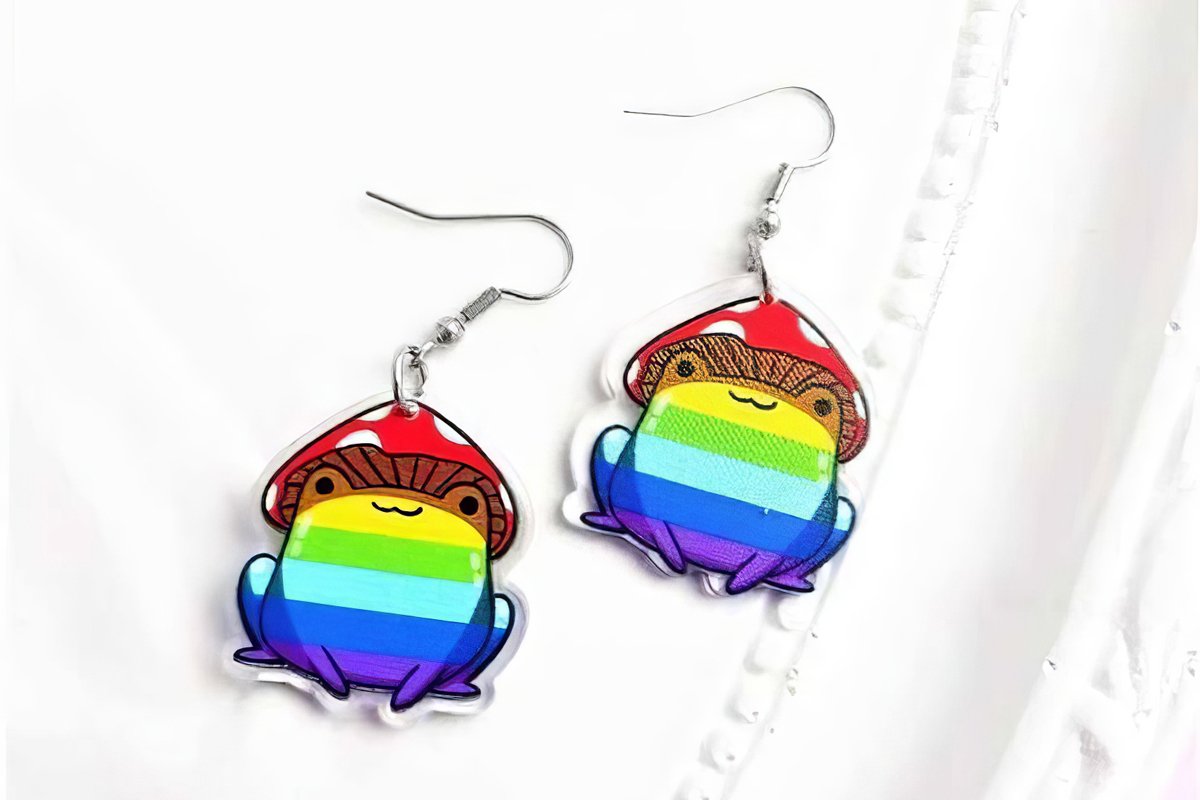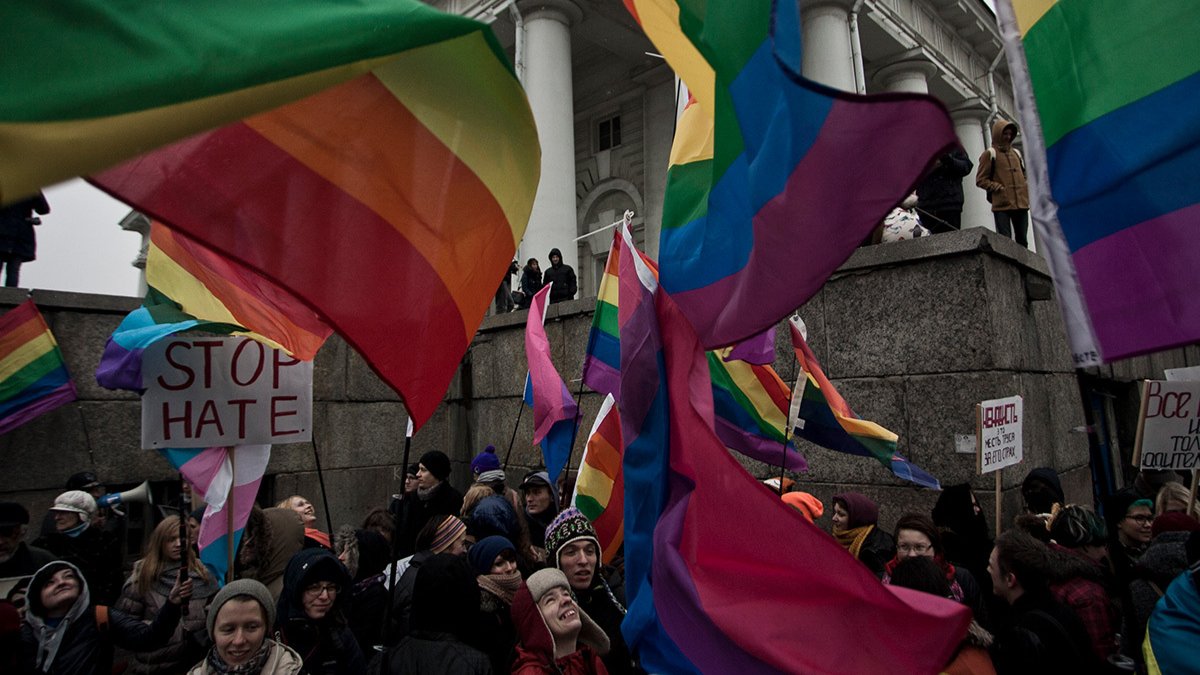In November, the Russian Supreme Court declared the “international LGBT social movement” an “extremist organisation”, capping off a decade of mounting crackdowns on the rights of sexual minorities in Russia.
Enforcement of the new law began on 10 January, and since that date, citizens across Russia have found themselves facing fines and jail time for offences ranging from managing queer clubs to wearing rainbow earrings.
On Friday, a Moscow university student was sentenced to 15 days in jail over a Telegram post “displaying the symbols of the extremist international LGBT organisation”. This was just one in a long line of cases of Russians being prosecuted for whatever the Kremlin deems to be associated with the “extremist” queer community.
In mid-March, a criminal case was brought against the managers of a queer club in the city of Orenburg in the Urals after locals repeatedly informed on them. Local police broke into the club on 9 March and manhandled visitors; subsequently, the club’s art director, Alexander Klimov, and its administrator, Diana Kamilyanova, were sent to pretrial detention until 18 May for “organising the activities of an extremist organisation”.
Other Russians have been punished, seemingly arbitrarily, for even smaller violations. In late January, Anastasia Yershova, a resident of Nizhny Novgorod in central Russia, was forced to spend five days in a temporary detention centre because of a video strangers took of her at a café. In the video, Yershova is seen wearing frog earrings with rainbows on them — although, as commentators have noted, the rainbows on the earrings have seven colours, whereas the pride flag comprises only six.

Screenshot from the OZON marketplace
Another woman, Inna Mosina, was fined 1,500 rubles (€15) for posting pride flags on her Instagram account in December, even though the posts date from before the extremism ruling came into effect. A Moscow man was fined 1,900 rubles (€19) for posting a video of himself wearing a rainbow T-shirt on Instagram, and a woman from the city of Perm, in the Urals, received a similar fine for displaying a pride flag in the window of her home. And in March, the head of former presidential candidate Boris Nadezhdin’s local headquarters was held in custody for six days for posting a pride flag in a private Telegram chat with just 11 members.
Maxim Olenichev, a lawyer from the human rights project First Department, told Novaya Europe that the legal concept of “extremism” is very vague, but he did say that there is a legal distinction between “LGBT propaganda”, which an older Russian law already prohibited, and “extremist LGBT symbols”, which has only become illegal with the new extremism law. While propaganda describes audiovisual or written material demonstrating the equal value of queer people, “extremist LGBT symbols” can include the queer flag without any other context.
Olenichev also explained that “extremism” must have a social element. “It is not extremism when an individual LGBT person seeks help from specialists, psychologists, lawyers, or medical specialists,” he said, because “no social change is promoted” in these cases and nothing is being “called for”.
Likewise, he said that it is only illegal to own objects with LGBT symbolism if they are displayed publicly — like a pride flag in a window.
Yet the vague nature of the “LGBT movement ban” means that it is ultimately up to the court to determine what constitutes “extremist” symbols and what does not, Olenichev said. “It all depends on the beliefs held by a judge in a specific region. There is no logic there.”
Join us in rebuilding Novaya Gazeta Europe
The Russian government has banned independent media. We were forced to leave our country in order to keep doing our job, telling our readers about what is going on Russia, Ukraine and Europe.
We will continue fighting against warfare and dictatorship. We believe that freedom of speech is the most efficient antidote against tyranny. Support us financially to help us fight for peace and freedom.
By clicking the Support button, you agree to the processing of your personal data.
To cancel a regular donation, please write to [email protected]

